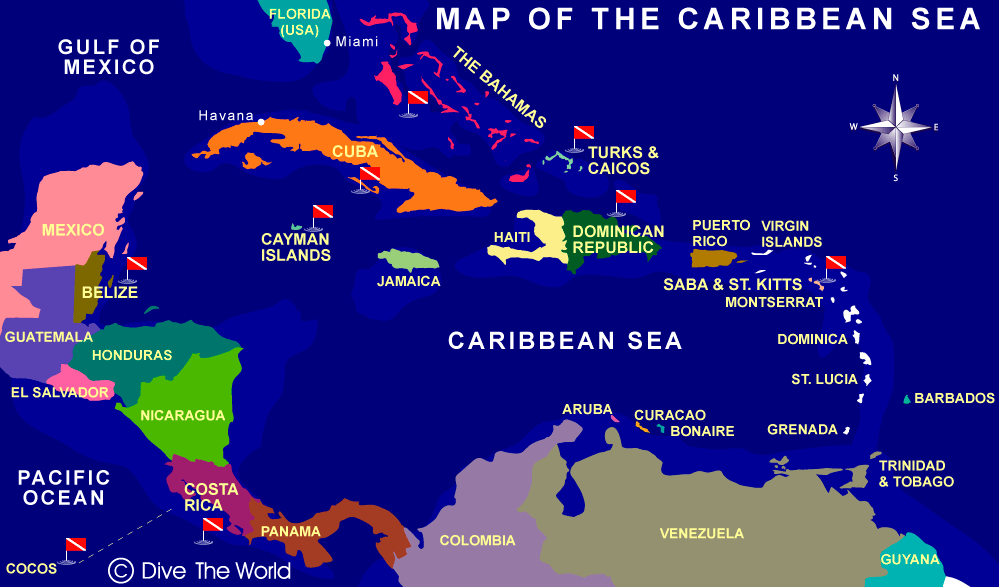Faster warming ocean spells bad news for Caribbean




CHARLOTTE AMALIE, St. Thomas, USVI - The Caribbean islands, seen as dots in the Atlantic Ocean, have been ravaged by hurricanes throughout history. But as global warming continues to accelerate, the impact of storms on the islands—scientists have said—will become more dire, a reality that could make many Caribbean islands uninhabitable overtime.
A new report published on Thursday, January 11, 2019, in the Journal of Science, found that the oceans are heating up 40 per cent faster on average than a United Nations panel estimated five years ago. The researchers also concluded that ocean temperatures have broken records for several consecutive years.
“2019 is going to be the warmest year on record for the Earth’s oceans,” said Zeke Hausfather, an energy systems analyst at the independent climate research group Berkeley Earth and an author of the study, according to The Times.
According to the report, as the planet has warmed, the oceans have provided a critical buffer. They have slowed the effects of climate change by absorbing 93 per cent of the heat trapped by the greenhouse gases humans pump into the atmosphere.
“If the ocean wasn’t absorbing as much heat, the surface of the land would heat up much faster than it is right now,” said Malin L. Pinsky, an associate professor in the department of ecology, evolution and natural resources at Rutgers University. “In fact, the ocean is saving us from massive warming right now.”
More powerful storms
But the report states that the surging water temperatures are already killing off marine ecosystems, raising sea levels and making hurricanes more destructive. Scientists say as the oceans heat up, those effects will become even more destructive with more powerful storms like Hurricanes Irma and Maria, which ravaged multiple Caribbean islands in 2017, among them the U.S. Virgin Islands, British Virgin Islands, Puerto Rico, Dominica, Tortola, Anguilla, St. Martin and Barbuda.
According to The Times, which quoted Kathryn A. Matthews, Deputy Chief Scientist for the conservation group Oceana, said people in the tropics who rely heavily on fish for protein, could be hard hit. “The actual ability of the warm oceans to produce food is much lower, so that means they’re going to be more quickly approaching food insecurity,” she said.
Furthermore, because the islands are small and most of the hurricanes are usually multiple times their size, the damage wrought could not only cause loss of life, but it could depress islanders from rebuilding — especially if the storms get more frequent.
During his tenure, USVI Governor Kenneth E. Mapp stressed the importance of hardening the territory’s infrastructure to better withstand storms. Such hardening would come through dollars provided through the federal government.
Time to Prepare
Newly installed Governor Albert Bryan Jr has also spoken of the need to harden the territory’s infrastructure, though it remains to be seen how he will undertake the challenge, and what level of priority he will give the effort.
Last year, the USVI territory was spared hurricanes, though at least two came close to affecting the islands. Yet the fact that the islands were ravaged in 2017 and got close to being impacted in 2018, indicates a more dramatic weather pattern that does not bode well for the territory and the wider Caribbean.
This latest report comes on the heels of a United Nations’ Intergovernmental Panel on Climate Change (I.P.C.C.) report published in October, which alarmed leaders the world over and sent a shock through global citizens on the near-future consequences of changing weather patterns caused by global warming.
The changes threaten to destroy the current way of life for tens of millions of people if governments across the continents fail to take drastic action.
Worst yet to come
The report said worsening food shortages, mass die-off of coral reefs, growing wildfires, among other devastating consequences could impact planet earth as early as 2040.
The alarming findings painted a picture so grave that there is said to be “no document with historic precedent”.
The I.P.C.C. found that if greenhouse gas emissions continue at the current rate, the atmosphere will warm up by as much as 2.7 degrees Fahrenheit (1.5 degrees Celsius) above preindustrial levels by 2040, which would see the rapid escalation of drought and poverty and overwhelmed coastlines.
Past reports had honed in on estimating global warming consequences at 3.6 degrees Fahrenheit (2 degrees Celsius) because that was the threshold scientists previously researched for the most dire consequences of climate change. But the heads of small island nations, spooked by rising sea levels, had also asked scientists to examine the effects of 2.7 degrees of warming.










.jpg)







1.jpg)














6 Responses to “Faster warming ocean spells bad news for Caribbean ”